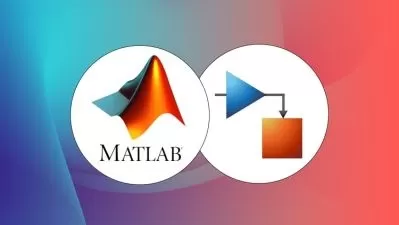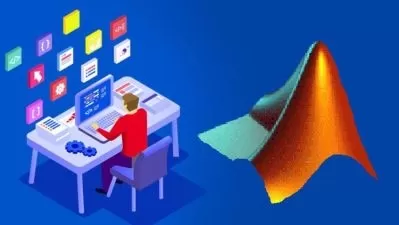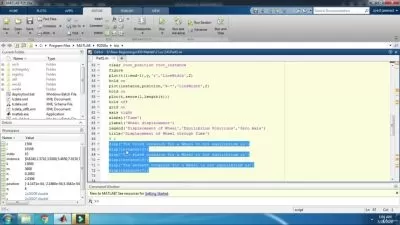Polynomial interpolation & spline interpolation with MATLAB
Carmine Caiaro
6:49:30
Description
Understand the math and the code behind the most common interpolation methods
What You'll Learn?
- Fast evaluation of polynomial functions, including Horner's method and Horner's method for derivatives
- Polynomial interpolation, including interpolation via monomial basis, Lagrange interpolation and Newton interpolation
- Spline interpolation, including linear spline interpolation and cubic spline interpolation
- How to implement all discussed algorithms in MATLAB
- The math behind all algorithms
- How to use MATLAB to present your results graphically
Who is this for?
What You Need to Know?
More details
DescriptionThrough the study of mathematics I have acquired the method to questionize any algorithm down to the smallest detail before I start with the implementation. On the one hand it is a great feeling to fully understand an algorithm (The Aha! moment). On the other hand one can avoid many errors whose cause lie in the misunderstanding of the algorithm in this way.
Thus it is a big part of this course to enlight the math behind the treated algorithms. Â
Nevertheless programming techniques behind algorithms are also very important and will be treated as accurate as the the math on which the algorithms are based on.
Here we will consider the code for any algorithm for an implementation in MATLAB.
MATLAB is a fundamental and enormously powerful programming language. This language is nearly unavoidable if one consider a career in engineering, science or related fields. That is why this course is based on MATLAB.
This course is for everyone who wants to learn about interpolation.
In this course you will learn about:
Horner's method
Horner's method for derivatives
Polynomial interpolation, including interpolation via monomial basis, Lagrange interpolation and Newton interpolation
The interpolation error (How can one minimize or estimate this error? How do we proof the formula for the error bound?)
Spline interpolation, including linear spline interpolation and natural cubic spline interpolation
Derivation of the formula for the linear and the natural cubic spline interpolation
The code behind all methodsÂ
The math on which these algorithms are based on
How to use MATLAB to visualize your own examples
With this course you will obtain also two Matlab Live Scripts with all implementations and all discussed examples.
Who this course is for:
- Engineering students
- Science students
- Anyone who has interest in interpolation
Through the study of mathematics I have acquired the method to questionize any algorithm down to the smallest detail before I start with the implementation. On the one hand it is a great feeling to fully understand an algorithm (The Aha! moment). On the other hand one can avoid many errors whose cause lie in the misunderstanding of the algorithm in this way.
Thus it is a big part of this course to enlight the math behind the treated algorithms. Â
Nevertheless programming techniques behind algorithms are also very important and will be treated as accurate as the the math on which the algorithms are based on.
Here we will consider the code for any algorithm for an implementation in MATLAB.
MATLAB is a fundamental and enormously powerful programming language. This language is nearly unavoidable if one consider a career in engineering, science or related fields. That is why this course is based on MATLAB.
This course is for everyone who wants to learn about interpolation.
In this course you will learn about:
Horner's method
Horner's method for derivatives
Polynomial interpolation, including interpolation via monomial basis, Lagrange interpolation and Newton interpolation
The interpolation error (How can one minimize or estimate this error? How do we proof the formula for the error bound?)
Spline interpolation, including linear spline interpolation and natural cubic spline interpolation
Derivation of the formula for the linear and the natural cubic spline interpolation
The code behind all methodsÂ
The math on which these algorithms are based on
How to use MATLAB to visualize your own examples
With this course you will obtain also two Matlab Live Scripts with all implementations and all discussed examples.
Who this course is for:
- Engineering students
- Science students
- Anyone who has interest in interpolation
User Reviews
Rating
Carmine Caiaro
Instructor's Courses
Udemy
View courses Udemy- language english
- Training sessions 52
- duration 6:49:30
- Release Date 2022/11/21










